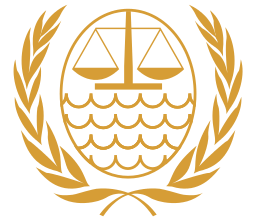A final remedy for the unlawful detention of tugs and crew – ITLOS
17th February 2023
In the January 2023 issue of International Tug & Salvage, regular columnist Simon Tatham explains how the International Tribunal for the Law of the Sea can intervene when tugs or crews are detained.
Most problems encountered by tugs and other ships trading the high seas are resolvable.
However, there are situations that arise where conventional routes to resolution cannot assist. There may be a contract to turn to and the small print examined, a surveyor appointed or perhaps an insurance claim handled with the skill expected of experienced people.
Salvors can be called, agents appointed to assist, deviation and repairs estimated, superintendents flown out or crew flown home, cargo transhipped and so on.
Moreover, where a third party can be held to blame, well-tried and tested systems areavailable on demand to bring the malefactors to justice or at least apportion or perhaps adjust the losses.
One of those problems where conventional resolutions are not available is when a state acts for no apparent good reason to detain a ship and its crew. As weeks turn to months, local interventions have not borne fruit, and there is still no resolution in sight – where does the unfortunate shipowner then turn?
Instances such as the detention of the salvage master assisting on the Tasman Spirit grounding in 2003 and the security guards on vessel Seaman Guard Ohio in 2013 spring to mind.
In a recent case, tanker Heroic Idun and its crew were detained by the Republic of Equatorial Guinea at the request of the Nigerian state. The lawfulness of the detention, much reported in the shipping press, was strongly contested.
When diplomatic interventions came to nothing at the end of 2022, the Marshall Islands intervened at the request of owners, applying to the International Tribunal for the Law of the Sea (ITLOS).

As the flag state, it sought an order for prompt release of the vessel. The illegality of the original interdiction meant domestic remedies through the local courts did not have to be pursued first. Equatorial Guinea avoided having to respond because they quickly handed the vessel over to the Nigerian state.
Hamburg, Germany, a port with an illustrious historical association with the maritime industry, was selected to be the seat of ITLOS.
This is an independent judicial body established to administer the United Nations Convention on the Law of the Sea 1982 (UNCLOS).
It is a tribunal of final resort for owners where nations can be held to account for their unlawful actions, with binding decisions.
The tribunal consists of 21 independent members elected by secret ballot by the state parties to the convention representing a cross-section of the principal legal systems of the world. ITLOS has a reputation for fairness and integrity as well as competence in the field of law of the sea.
The UNCLOS convention sets out a legal framework to regulate all ocean space. It does not cover everything but does contain a sweeping range of provisions relating to territorial seas, contiguous zones, continental shelves, exclusive economic zones, and the high seas among other things.
The convention provides for a mechanism for arbitration where damages can be sought typically for unlawful interference with the right of innocent passage.
In particular, ITLOS has jurisdiction, compulsory for member states, in proceedings relating to the release of vessels and crews. Applications require the posting of a reasonable bond, usually arranged by a P&I Club.
ITLOS president and judge Albert Hoffmann aptly compared these to “diplomatic protection, in that they allow a dispute concerning a private vessel to be brought to the level of interstate proceedings.”
This diplomatic protection provides an attractive remedy to tugs and other vessels in problematic situations where the traditional avenues to resolution fail to provide any aid.
Finally, one practical point needs to be made in case a tug gets arrested for a commercial claim, even if that leads to a lengthy detention by court order of a ship and therefore its crew. ITLOS is not there to assist. It is an arbiter of disputes that arise under the provisions of UNCLOS.
Tatham & Co are acting for the owners and crew of the HEROIC IDUN in relation to the detentions in W.Africa
